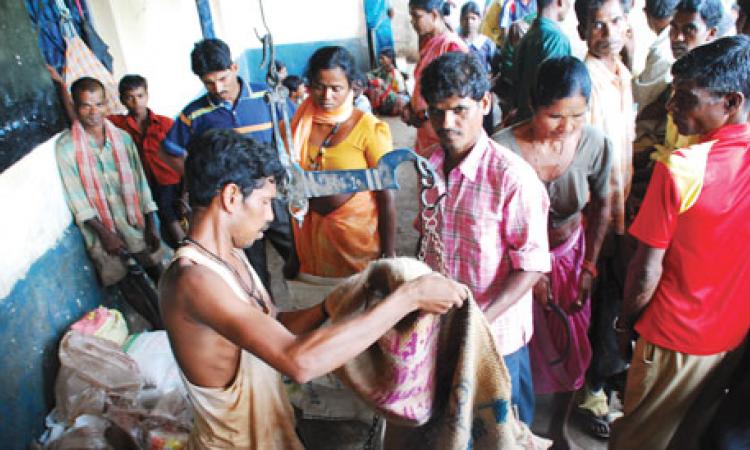
PDS rations only for BPL households with toilets in Sheopur, Madhya Pradesh
In a bid to curb rampant open defecation, the district authorities in Sheopur, Madhya Pradesh have decided to provide rations through the public distribution system (PDS) only for those below poverty line (BPL) households which have a toilet. Rations will be provided by the PDS staff only on production of a certificate to ascertain the presence of household toilets. Under the insistence of the district collector, the residents of all 587 villages had earlier taken an oath to rid the district of open defecation by January 26, 2017. The move is not without criticism as some people believe that lack of water is one of the main reasons pushing people away from using household latrines as defecating out in the open consumes far less water.
Just over Rs 2 crore of the allotted Rs 360 crore spent on Swachh Bharat activities in Delhi
Terming the entire exercise of Swachh Bharat implementation as a complete failure in Delhi, the Swaraj India party has noted that just Rs 2.22 crore has been spent over the last two years out of the allotted Rs 360.01 crore. The North and the East Delhi municipal corporations also have the dubious record of not spending a single rupee allotted to them for Clean India activities in 2015-16. Only the South Delhi corporation has spent Rs 1.86 crore out of the allocated Rs 66.47 crore. The involvement of multiple agencies is cited as one of the biggest impediments to the successful implementation of schemes in the national capital.
Bengaluru's solid waste management micro-policy to be emulated by cities across India
The success of Bengaluru’s micro-policy on solid waste management has prompted authorities to replicate it in other cities as well. Under this, an autorickshaw collects waste from houses in a particular ward, visiting half the number of houses in a single trip. The households and the resident associations are intimated about the arrival time of these vehicles. The rickshaws then transport the collected waste to bigger compactor trucks which then transport them to landfills. Both the autos and the trucks are tracked through the GPS to ensure efficiency. The officials from the Swachh Bharat Mission has shown interest in duplicating this model in the other cities across the country.
Bhubaneswar to install two-bin system in public places to encourage people to segregate waste
Moving forward, the Bhubaneswar municipal corporation will install two bins--a blue and a green one--in public places to encourage people to segregate the degradable waste from the non-degradable ones. The civic authority has decided to place 1000 garbage bins in 500 location by February 1. While degradable waste such as food and vegetable waste can be disposed of in the green-coloured bins, non-biodegradable garbage such as glass, plastic and rubber can be dumped in the blue bin. The corporation has decided to expand this to the entire city in a bid to streamline segregation, collection and disposal of garbage as part of its overall improved integrated solid waste management plan.
Toilet crusader Suhas Vitthal Mapuskar awarded the Padma Shri posthumously
Life-long sanitation and hygiene crusader, Suhas Vitthal Mapuskar has been awarded the Padma Shri posthumously. Mapuskar was the brain behind indigenous toilets which complemented the sensibilities of the rural folk. Many also have attached biogas units which helped power household kitchens. Mapuskar, along with his team in Pune’s Dehu panchayat, managed to convince skeptical villagers even before the government launched its dedicated sanitation and hygiene programmes.
This is a roundup of important sanitation related news published between January 21 and 27, 2016.Lead image courtesy: Down to Earth
/articles/pds-rations-only-those-toilets-sheopur